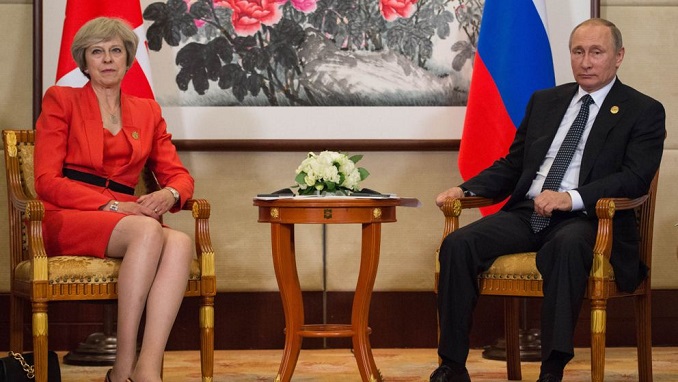British Prime Minister Theresa May’s response to Russia after a nerve agent attack on British soil is unlikely to trouble Kremlin chief Vladimir Putin, analysts say.
May expelled 23 Russian spies using diplomatic cover and promised to freeze Russian State assets if they were used to threaten British interests, and also said Britain would work on new powers to defend against hostile state activity, beef up counter-espionage powers and cut back official participation in the soccer World Cup.
But her announcement, just days before an election in which Putin is expected to coast to a fourth term, gave no examples of Russian officials or companies that would be targeted or barred from London’s financial center.
“The Kremlin will understand this as a very mild response,” Mathieu Boulègue, a Russia expert at Chatham House think-tank in London told Reuters. “Putin is unlikely to be worried by this.”
As Russian opposition leader Alexei Navalny said in a sarcastic tweet on Wednesday, “Members of the British royal family won’t come to the opening of the soccer World Cup. Putin weeps from grief and ceases to kill people.”
Navalny later deleted the tweet, as well as another one, saying that while 23 Russian diplomats will be expelled, 23 Russian oligarchs and officials “will continue enjoying London.”
A senior British government official said further options remained on the table: “Economic, diplomatic, legislative, and our security capabilities can all be brought to bear if needed.”
While the United States and European Union joined criticism of Moscow – albeit with a delayed response from U.S. President Donald Trump – there was little evidence of appetite in Paris, Berlin or Washington for anything beyond a scolding.












